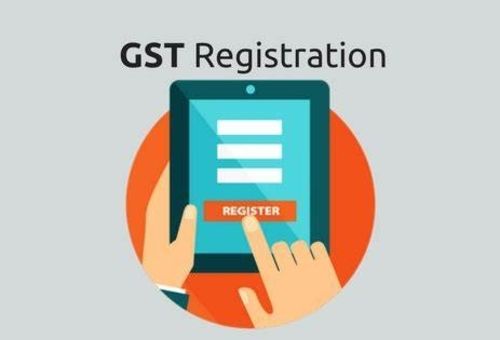From Beginning To End: The Ultimate Roadmap to GST Enrollment for Businesses Looking For Financial Security
Navigating the intricacies of Product and Services Tax Obligation (GST) enrollment is a critical step for organizations pursuing monetary security. From recognizing the fundamental concepts of GST to complying with post-registration standards, the procedure can seem daunting at initial look. Nonetheless, breaking down the roadmap into workable actions can enhance the enrollment journey for businesses wanting to enhance their financial standing. Let's check out the crucial elements that compose this supreme roadmap and find exactly how each stage contributes to laying a solid foundation for financial success.
Understanding GST Fundamentals
Looking into the fundamental concepts of Item and Services Tax (GST) is essential for gaining a comprehensive understanding of its ramifications on businesses and the economy. GST is a value-added tax obligation imposed on many goods and solutions for residential consumption. It has replaced multiple indirect tax obligations that existed in the pre-GST age, simplifying the tax obligation framework and improving ease of doing business in India. Under the GST system, both solutions and products are strained at a specific price, which is figured out based on their classification. Companies are required to sign up for GST if their annual turn over surpasses the threshold limit established by the government. Input Tax Obligation Debt (ITC) is a substantial function of GST, permitting companies to claim credit score for taxes paid on inputs, lowering the total tax obligation concern. Understanding the essentials of GST is vital for services to conform with tax obligation policies, handle their financial resources efficiently, and add to the nation's economic development by joining a transparent tax system.
Qualification Requirements for Registration
To sign up for GST, services have to meet specific qualification criteria established by the federal government. The main eligibility demand is that any service associated with the supply of goods or solutions with an annual accumulation turn over over the threshold limitation established by the authorities must sign up for GST. As of the current policies, the threshold limit for GST registration is an annual accumulation turnover of 40 lakhs for organizations operating within a state, besides special group states where the restriction is 20 lakhs. Furthermore, certain companies are required to register for GST irrespective of their turn over, such as interstate suppliers, informal taxable persons, and companies accountable to pay tax under the reverse cost mechanism. It is critical for my link services to thoroughly analyze their turn over and deal types to establish their GST registration commitments properly. Failure to register for GST when eligible can lead to charges and legal effects, making it essential for services to abide by the defined eligibility standards.
Papers Needed for Enrollment
Having actually met the qualification requirements for GST registration, organizations need to now ensure they have the requisite records in location to proceed with the enrollment process successfully. The papers required for GST enrollment commonly include evidence of business constitution, such as partnership action, enrollment certificate, or unification certificate for different kinds of services. Furthermore, companies require to offer records establishing the major location of business, such as a rental arrangement or electrical energy expense.
Step-by-Step Registration Refine
Commencing the GST registration procedure entails a series of organized actions to guarantee a compliant and smooth enrollment for companies. The initial step is to see the GST website and fill in the enrollment form with exact information of the business entity. Following this, the candidate receives a Short-term Reference Number (TRN) which is used to resume the application process if it's not completed in one go.
Following, all required files according to the checklist offered by the GST portal demand to be uploaded. These papers commonly consist of proof of business identification, address and enrollment proofs of marketers, monetary declarations, and organization entity's frying pan card.

Post-Registration Compliance Guidelines

Final Thought
Finally, services seeking financial security must recognize the fundamentals of GST, satisfy eligibility standards, collect needed papers, follow the step-by-step registration process, and adhere to post-registration standards continue reading this - Best GST registration services in Singapore. By sticking to these steps, businesses can make certain conformity with tax obligation policies and maintain economic stability in the future
In addition, specific companies are called for to register for GST regardless of their turnover, such as interstate suppliers, informal taxable persons, and organizations responsible to pay tax under the reverse cost system.Having met the qualification criteria for GST enrollment, organizations should currently guarantee they have the requisite papers in place to continue with the registration procedure effectively. The documents required for GST enrollment typically consist of proof of organization constitution, such as collaboration action, registration certificate, or incorporation certificate for various types of organizations. Furthermore, organizations need to provide documents developing the principal location of business, such as a rental contract or power expense.Starting the GST registration process includes a collection of structured steps to ensure a certified and seamless enrollment for companies.